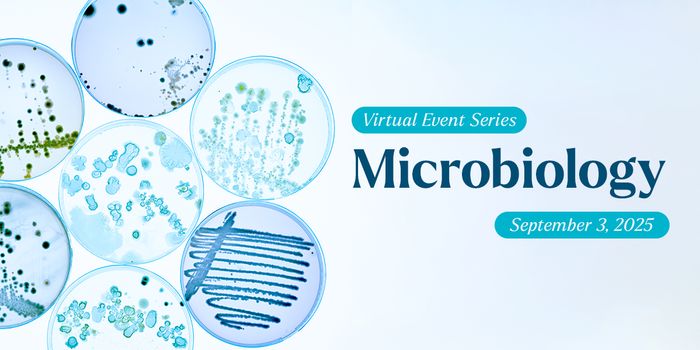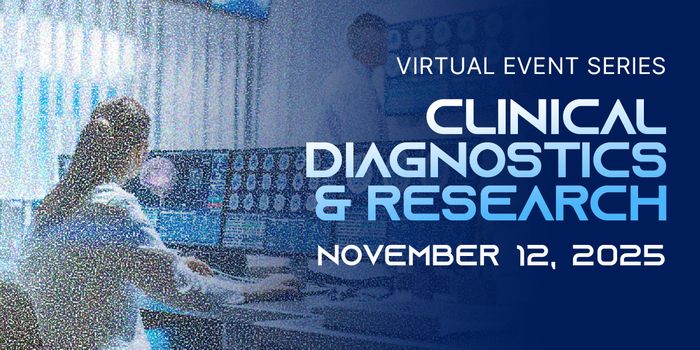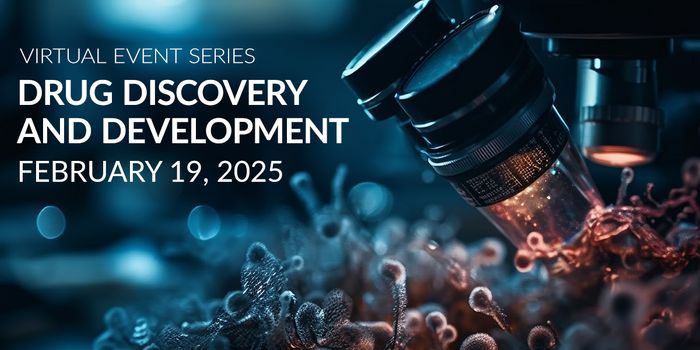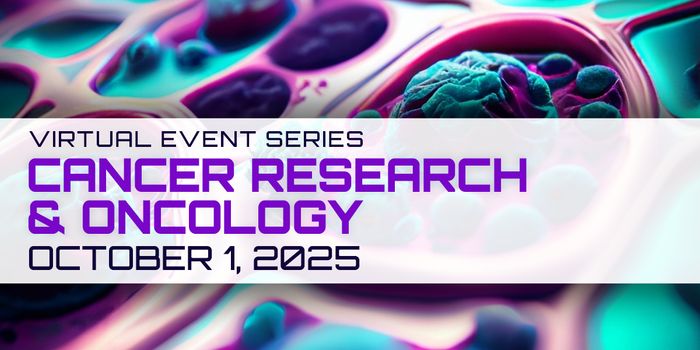Dr. Benbow joined the faculty of at Michigan State University in 2014 with a joint appointment in the Department of Department of Entomology and Department Osteopathic Medical Specialties. From 2008 - 2013 he was an assistant professor at the University of Dayton. His research ... program has developed around basic and applied insect and microbial ecology, with a history of studying disease in West Africa and more recent activities in building partnerships for food security in Malawi. He is the author or coauthor of over 140 peer-reviewed journal articles, 29 book chapters, three edited books and has received funding through NIH, NSF, NIJ, USDA, USGS, and USFS. Dr. Benbow has also served on three National Academy of Science, Engineering and Medicine appointed committees and is a regularly invited speaker to many international venues as a result of interactions with national and international scientists. He is a Fellow of the American Academy of Forensic Sciences and former president of the North American Forensic Entomology Association. Dr. Benbow is a community and disease ecologist, studying how complex communities (e.g., aquatic or carrion insects or microbes) contribute to ecological systems and can understanding these communities can be used in various applications in medicine, disease and forensics. One of the largest community ecology studies related to human health has been the Human Microbiome Project that showed much of the human body is composed of a wide diversity of prokaryotic cells and that these communities have significant importance to human health. Using the technological advances that came with the Human Microbiome Project, Dr. Benbow and colleagues have partnered with a medical examiner office to survey the postmortem microbiomes during routine autopsies and death investigations. The goal of this collaborative work is to determine how postmortem microbiomes can be used to make estimates of the postmortem interval and manner/cause of death. In addition to this work, Dr. Benbow's lab also does basic forensic research on how aquatic microbiomes can be used to estimate postmortem submersion intervals; consults for death investigations; and studies how insects and microbial communities interact in ways that could affect evidence during investigations. In addition to forensic research, Dr. Benbow's lab asks three general questions: 1) Is insect fitness influenced by the community of microbes living in or on them? 2) What are the ecological interactions of insects with the microbial communities associated with their habitat or food resources? and, 3) How can this information be used to inform resources management, human health and forensics? With a joint appointment in the College of Osteopathic Medicine, his lab seeks to answer these insect-microbe questions for translation into human health applications. Given the rich history of research in insect-microbe interactions that has focused on vectoring pathogens and co-evolved symbionts, coupled with the advanced ability to identify culturable and non-culturable bacteria using high throughput sequencing, a new generation of inquiry into the importance of the insect microbiome and their interactions in nature has tremendous potential for insect science. It is within this realm of inquiry where his students test explicit hypotheses at the individual, population and community levels to better understand the importance of insect-microbe interactions to the ecology and evolution of carrion, aquatic biology, forensics and disease systems. The research centers on the applied ecology of insect-microbial interactions within three systems: carrion decomposition (and forensics), aquatic ecological networks and disease systems.
See more See less-
M. Eric Benbow, PhD, AAFS-F
Dr. Benbow joined the faculty of at Michigan State University in 2014 with a joint appointment in the Department of Department of Entomology and Department Osteopathic Medical Specialties. From 2008 - 2013 he was an assistant professor at the University of Dayton. His research ...
See more -
Henry C. Lee, PhD
Dr. Henry C. Lee is one of the world's foremost forensic scientists. Dr. Lee's work has made him a landmark in modern-day criminal investigations. He has been a prominent player in many of the most challenging cases of the last 50 years. Dr. Lee has worked with law enforcement ...
See more -
Nicole M.M. Novroski, PhD
Dr. Nicole Novroski is an Assistant Professor and Forensic Geneticist within the Forensic Science Program at the University of Toronto. She is native to Canada, where she completed her Bachelor's Degree in Forensic Science and Biology at the University of Toronto (where she is ...
See more
Forensic Sciences Virtual Event Series 2021
This event is now apart of the Genetics Week Virtual Event Series.
LabRoots is pleased to announce our 3rd Annual Event in the Forensic Sciences Virtual Event Series on May 5, 2021. Join us for this free, one-day event on May 5th as we discuss DNA, chemistry, toxicology, digital forensics, and the important marginal area where science and medicine interact with the law.
This year's event includes the following tracks:
Forensic Research: From Evidence to Testimony
- Forensic Genealogy
Advances and Challenges in Forensic Research
- COVID-19 Impact on Forensic Science
Application of Analytical Methods in Forensic Sciences
Our virtual conference allows you to participate in a global setting with no travel or cost to you. The event will remain open for 2 years from the date of the live event, and the webinars will be available for unlimited on-demand viewing. This virtual conference also offers increased reach for the global microbiology community with a high degree of interaction through live-streaming video and chat sessions.
Like the 2020 conference, this event will be produced on our robust platform, allowing you to watch, learn and connect seamlessly across all desktop or mobile devices. Equipped with gamification and point system, you can now move around the entire event, earning points for a chance to win one of LabRoots' most popular T-shirts.

Call for Posters — Virtual poster sessions offer the opportunity to present data to a global audience via a PDF poster and video summary, and discuss results with interested colleagues through email. Plan now to have your poster included in the 2021 Forensic Sciences Virtual Event. Submission is free. Submit your abstract here.
Continuing Education — LabRoots is approved as a provider of continuing education programs in the clinical laboratory sciences by the ASCLS P.A.C.E. ® Program. By attending this event, you can earn 1 Continuing Education credit per presentation for a maximum of 30 credits.
Use #LRforensics to follow the conversation!
Agenda Share
-
MAY 05, 2021 12:00 PM PDT
How to improve seized drug analysis workflows and throughput with fast, specific analysis by direct ionisation mass spectrometry?
Francis Diamond
Senior Staff Scientist, Center for Forensic Science Research and Education (CFSRE) - USABIOGRAPHYSponsored By: Waters (Forensic Sciences) -
MAY 05, 2021 10:30 AM PDT
Designer benzodiazepines and pregabalin. A lethal combination
Nigel Brown, PhD, FIBMS, FRCPath, MRSC
Consultant Clinical Scientist, Toxicology, Wansbeck General HospitalBIOGRAPHYSponsored By: Waters (Forensic Sciences) -
MAY 05, 2021 9:00 AM PDT
Keynote Presentation: Forensic Evidence; From Scene to Lab to Court
Henry C. Lee, PhD
Chia Professor, University of New Haven Chief Emeritus (ret.), Connecticut State Police Director, Research & Training CenterBIOGRAPHY -
MAY 05, 2021 7:30 AM PDT
Keynote Presentation: Forensic Genetic Genealogy, a Revolutionary New Tool for Solving Cold Cases
-
A comprehensive look at decomposition odor research and the impact of COVID-19 on studies
Katelynn Perrault, PhD
Assistant Professor of Forensic Sciences and Chemistry, Laboratory of Forensic and Bioanalytical Chemistry, Forensic Sciences Unit, Chaminade University of HonoluluBIOGRAPHY -
Combining Morphological and Chemical Identification for the Interrogation of Forensic Traces
Brooke Weinger Kammrath, Ph.D., D-ABC
Assistant Director, Henry C. Lee Institute of Forensic Science, Associate Professor, Forensic Science DepartmentBIOGRAPHY -
Forensic Science Education in the COVID Era: Challenges, Victories and A Novel Pedagogical Approach for the Future
Nicole M.M. Novroski, PhD
Assistant Professor & Forensic Geneticist, Forensic Science Program (Dept of Anthropology), University of Toronto MississaugaBIOGRAPHY -
Identification and Interpretation of Fly Pattern Evidence at Crime Scenes
David Rivers, PhD
Professor of Biology, Director of Forensic Studies, Graduate Director, Forensic Pattern Analysis Department of Biology, Loyola University MarylandBIOGRAPHY -
Leveraging Bioinformatic Resources to Better Tackle Challenging Biological Substrates and DNA Profiles
Frank Wendt, PhD
National Institute of Mental Health NRSA Postdoctoral Fellow, Department of Psychiatry Division of Human Genetics, Yale School of Medicine & VA CT Healthcare SystemBIOGRAPHY -
Microbiomes after Death
Jennifer Pechal, PhD
Assistant Professor, Department of Entomology, Michigan State UniversityBIOGRAPHY -
The Opioid Crisis - Challenges for Forensic Toxicologists
Karen Woodall, PhD
Assistant Professor and Forensic Toxicologist Forensic Science Program, University of TorontoBIOGRAPHY
- Application of Analytical Methods in Forensic Sciences
-
The Opioid Crisis - Challenges for Forensic Toxicologists
Karen Woodall, PhD
Assistant Professor and Forensic Toxicologist Forensic Science Program, University of TorontoBIOGRAPHY -
Leveraging Bioinformatic Resources to Better Tackle Challenging Biological Substrates and DNA Profiles
Frank Wendt, PhD
National Institute of Mental Health NRSA Postdoctoral Fellow, Department of Psychiatry Division of Human Genetics, Yale School of Medicine & VA CT Healthcare SystemBIOGRAPHY -
Combining Morphological and Chemical Identification for the Interrogation of Forensic Traces
Brooke Weinger Kammrath, Ph.D., D-ABC
Assistant Director, Henry C. Lee Institute of Forensic Science, Associate Professor, Forensic Science DepartmentBIOGRAPHY -
Microbiomes after Death
Jennifer Pechal, PhD
Assistant Professor, Department of Entomology, Michigan State UniversityBIOGRAPHY - Advances and Challenges in Forensic Research
-
A comprehensive look at decomposition odor research and the impact of COVID-19 on studies
Katelynn Perrault, PhD
Assistant Professor of Forensic Sciences and Chemistry, Laboratory of Forensic and Bioanalytical Chemistry, Forensic Sciences Unit, Chaminade University of HonoluluBIOGRAPHY -
Identification and Interpretation of Fly Pattern Evidence at Crime Scenes
David Rivers, PhD
Professor of Biology, Director of Forensic Studies, Graduate Director, Forensic Pattern Analysis Department of Biology, Loyola University MarylandBIOGRAPHY -
Forensic Science Education in the COVID Era: Challenges, Victories and A Novel Pedagogical Approach for the Future
Nicole M.M. Novroski, PhD
Assistant Professor & Forensic Geneticist, Forensic Science Program (Dept of Anthropology), University of Toronto MississaugaBIOGRAPHY -
MAY 05, 2021 7:30 AM PDT
Keynote Presentation: Forensic Genetic Genealogy, a Revolutionary New Tool for Solving Cold Cases
- Forensic Research: From Evidence to Testimony
-
MAY 05, 2021 9:00 AM PDT
Keynote Presentation: Forensic Evidence; From Scene to Lab to Court
Henry C. Lee, PhD
Chia Professor, University of New Haven Chief Emeritus (ret.), Connecticut State Police Director, Research & Training CenterBIOGRAPHY
Speakers Share
-
Nigel Brown, PhD, FIBMS, FRCPath, MRSC
Consultant Clinical Scientist, Toxicology, Wansbeck General Hospital
BIOGRAPHY
-
Francis Diamond
Senior Staff Scientist, Center for Forensic Science Research and Education (CFSRE) - USA
BIOGRAPHY
-
Colleen Fitzpatrick, PhD
Founder, Identifinders International
BIOGRAPHY
-
Henry C. Lee, PhD
Chia Professor, University of New Haven Chief Emeritus (ret.), Connecticut State Police Director, Research & Training Center
BIOGRAPHY
-
Nicole M.M. Novroski, PhD
Assistant Professor & Forensic Geneticist, Forensic Science Program (Dept of Anthropology), University of Toronto Mississauga
BIOGRAPHY
-
Jennifer Pechal, PhD
Assistant Professor, Department of Entomology, Michigan State University
BIOGRAPHY
-
Katelynn Perrault, PhD
Assistant Professor of Forensic Sciences and Chemistry, Laboratory of Forensic and Bioanalytical Chemistry, Forensic Sciences Unit, Chaminade University of Honolulu
BIOGRAPHY
-
David Rivers, PhD
Professor of Biology, Director of Forensic Studies, Graduate Director, Forensic Pattern Analysis Department of Biology, Loyola University Maryland
BIOGRAPHY
-
Cyril Wecht, M.D., J.D.
Forensic pathologist and Medicolegal Consultant
BIOGRAPHY
-
Brooke Weinger Kammrath, Ph.D., D-ABC
Assistant Director, Henry C. Lee Institute of Forensic Science, Associate Professor, Forensic Science Department
BIOGRAPHY
-
Frank Wendt, PhD
National Institute of Mental Health NRSA Postdoctoral Fellow, Department of Psychiatry Division of Human Genetics, Yale School of Medicine & VA CT Healthcare System
BIOGRAPHY
-
Karen Woodall, PhD
Assistant Professor and Forensic Toxicologist Forensic Science Program, University of Toronto
BIOGRAPHY
-
Waters (Forensic Sciences)
You have a job to do. Whether it's identifying seized drugs, presenting reliable forensic data in court, analyzing prohibited substances in a sports doping investigation, monitoring illicit drug use, or keeping up with the demand to identify new psychoactive substances, your job ...
See more
Event Series

Precision Medicine: Genomics, Genetics & Molecular Diagnostics Virtual Event Series 2025

Precision Medicine: Genomics, Genetics & Molecular Diagnostics Virtual Event Series 2024

Genetics Week Virtual Event Series 2023

Genetics Week Virtual Event Series 2022

Genetics Week Virtual Event Series 2021

Forensic Sciences Virtual Event Series 2020

Genetics Week Virtual Event Series 2020

Genetics and Genomics Virtual Event Series 2019

Molecular Diagnostics Virtual Event Series 2019

Genetics and Genomics Virtual Event Series 2018

Molecular Diagnostics Virtual Event Series 2018

Genetics and Genomics Virtual Event Series 2017

Molecular Diagnostics Virtual Event Series 2017

Genetics and Genomics Virtual Event Series 2016

Molecular Diagnostics Virtual Event Series 2016

Genetics and Genomics Virtual Event Series 2015

Genetics and Genomics Virtual Event Series 2014















































